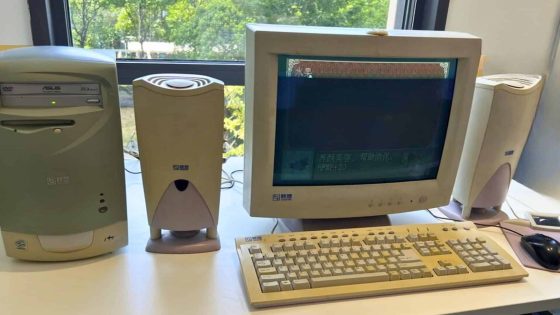In a groundbreaking move, EXO Labs has demonstrated that modern artificial intelligence (AI) can operate on surprisingly outdated hardware. Their recent experiment, conducted on a 25-year-old Pentium II computer, challenges the prevailing notion that AI requires cutting-edge processors. On June 20, 2025, the team successfully ran the Llama 2 AI model, showcasing the potential of retro technology in today’s digital landscape.
- EXO Labs challenges AI hardware assumptions.
- Successfully used a 25-year-old Pentium II.
- Overcame compatibility issues with modern peripherals.
- Transferred files via FTP connection.
- Ran Llama 2 AI model on outdated hardware.
- BitNet architecture enables efficient AI deployment.
Finding a working Pentium II was no small feat, but the researchers persevered, overcoming obstacles like limited RAM and outdated peripherals. Their innovative approach not only proved that older machines can still contribute to AI development but also opened new avenues for energy-efficient computing.
This achievement raises an important question: Could the future of AI be less about powerful GPUs and more about efficient coding? By leveraging older systems, we might unlock new possibilities for AI deployment. Consider these implications:
- Increased accessibility to AI for developing regions.
- Reduced energy consumption in AI applications.
- Revival of older technology, promoting sustainability.
As we look ahead, the success of EXO Labs serves as a reminder that creativity and resourcefulness can redefine the boundaries of technology. Will we see a shift towards more sustainable AI practices in the near future?

































